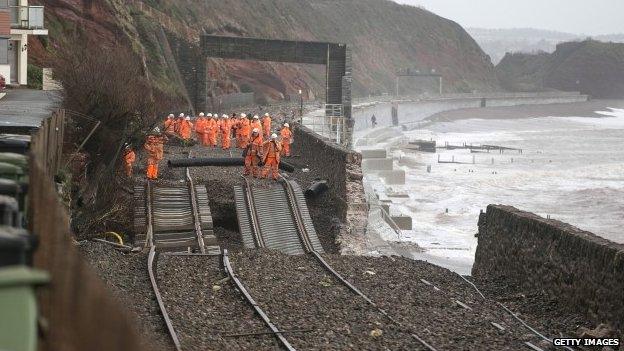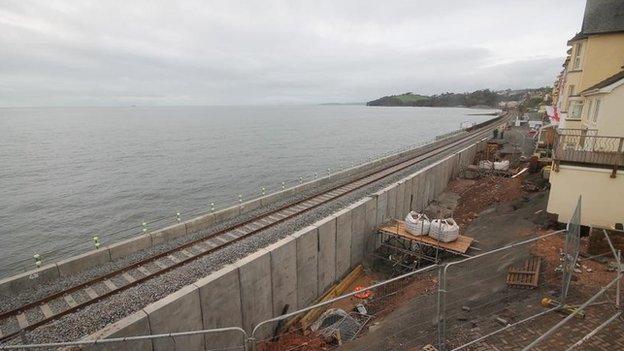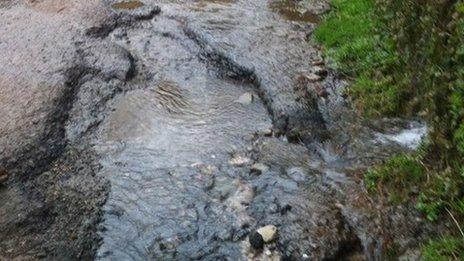South West 'may lose on transport'
- Published

The destruction of the railway at Dawlish during the winter storms highlighted shortcomings in the South West's transport network
Regions such as the south west of England could be disadvantaged by changes to the way the government funds road and rail projects, says the Transport Select Committee.
In a report, the committee said a new system from 2015 would encourage private-sector funding.
That could disadvantage regions with less private sector money, said the report.
The South West receives the lowest spend on transport in the country.
According to the Office for National Statistics (ONS), in 2011-12 £184 was spent per head of population on transport in the region.
That was the lowest level in the UK and less than a third of the level in London where £644 was spent, according to the ONS.
The transport committee recommended local transport spending be less concentrated on London.
Devon County Council leader, John Hart, said he recognised the imbalance.
"That's why we've been lobbying the government," he said.
"We lobbied hard on Dawlish [railway line]. We've been arguing for quite a while now on the need for money to be spent on improving the A303.
"We don't mind being competitive as long as we've got an equal shout.
"We're confident we can make these cases, but what we need is for the money to be available.
'Fair share'
John Pollard, leader of Cornwall Council, said he wanted Cornwall to get its "fair share".
"We're fighting hard to make sure the projects we've got in train, like the dualling of the A30, do gain equal traction with high profile stuff like HS2," said Mr Pollard.
"We need to be convincing government that we need the packages of money that our community needs. It's always a competition."
Labour MP Louise Ellman, who chairs the committee, said inequality between London and the regions had gone on for too long.
She also said the new regime, in which local authorities submit competing bids for central funding, would lead to money being wasted on failed bids.
The Institute for Public Policy Research told the committee its research suggested spending in London was £2,596 per head and as low as £5 per head in the north east of England.
- Published6 April 2014

- Published20 March 2014
